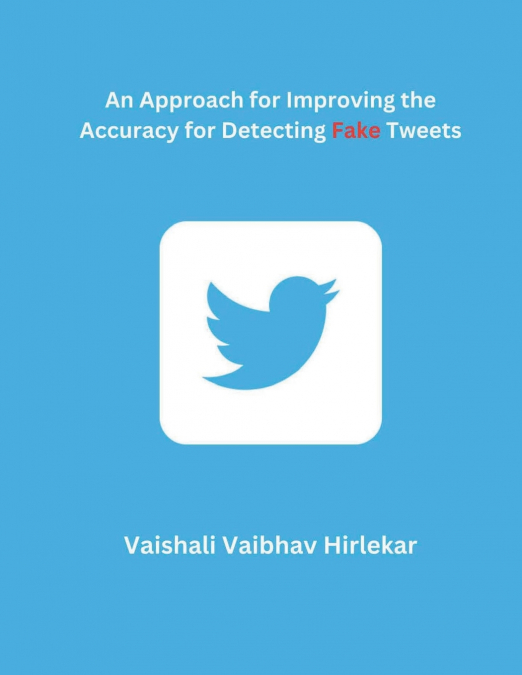
Vaishali Vaibhav Hirlekar
In the modern world, fake information is a growing issue. Hoaxes and deliberate lies are disseminated through traditional media outlets or social platforms can be considered misleading/fake news. Fake information is produced and spread to deceive a person or an organization financially or politically. The transmission and dissemination of such misleading information could cause serious hazards; it could create threat to national security too. To mitigate the negative consequences of misleading news, a method to automatically recognise fake news must be developed. So far different measures have been put in order to identify misleading information. There are various ways to characterise fake news. An article of news that is purposefully and demonstrably untrue is known as fake news. The phrase 'fake news' is used to describe misleading information that appears in mainstream media. Fake news is a term that is used to describe a variety of ideas, including rumour and misinformation. According to another definition, fake news is a type of misleading information released under the guise of being legitimate news commonly spread through news outlets or the internet with a goal to gain politically or financially, boost reading, and prejudice public opinion. Some made distinctions between different types of fake news, such as severe fabrications, massive hoaxes, and hilarious fakes. Today, social media has become a necessary component of daily life. Every day, we read numerous articles on social media. Some are real, but majority of the time they are found fake. The reason behind this is, every user is a self-publisher here, who doesn’t verify the veracity of the information and people forward the erroneous or incorrect information further which is composed of fabricated articles which ultimately results in fake news, those stories are made up to sway readers’ judgments or mislead them. Because of this misleading information are spread online more quickly than we can ever conceive, they have become more prevalent over the past several years on social platforms. Plenty of disinformation is spread about issues like politics, economics, and technological advancements.Misinformation, disinformation, malinformation are three distinct concepts that are frequently discussed in fake news. Despite being fake, misinformation is something which is being shared unintentionally. Disinformation is when a person deliberately spreads false information after knowing it to be real. Contrarily, information that is grounded in reality but does harm to an individual, group, or nation is referred to as malinformation.